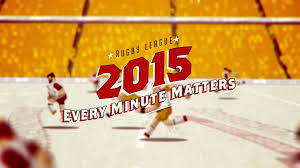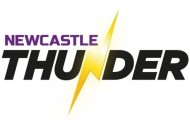 RUGBY League stands at the beginning of (yet another) new era. It’s the sport’s latest reinvention — and reinvention is something rugby league has always pursued.
RUGBY League stands at the beginning of (yet another) new era. It’s the sport’s latest reinvention — and reinvention is something rugby league has always pursued.
In 1895 the founders met at The George Hotel in Huddersfield and created the Northern Union, breaking away from the Rugby Football Union over the issue of broken time, the act of paying working men for wages lost as they played their sport. In other words, it was about the money.
Over the next 100 years rugby league evolved, all the while being persecuted by rugby union. And then, in 1995, the entire professional game was uprooted from its winter season and turned it into a summer sport. Once again, it was about the money.
And expansion of the game was on the agenda. Why did this sport have to be confined to its heartlands?
 An idea was forming, one which led, in 1999, to Gateshead Thunder joining the Super League. For the latest new era that club has a new name and a new home. So welcome Newcastle Thunder and good luck…
An idea was forming, one which led, in 1999, to Gateshead Thunder joining the Super League. For the latest new era that club has a new name and a new home. So welcome Newcastle Thunder and good luck…
The article below, a reaction to a plan for a club playing its games in York and Gateshead, goes back to the beginning…
First published in The Northern Echo, April 18, 1995
The dust has yet to settle on plans for radical change in the sport of Rugby League but Echo writer PHIL LAMBELL believes the North-East should be included in the Super League
MEDIA tycoon Rupert Murdoch has forced Rugby League into profound, and much-needed, change.
Only a handful of the 32 professional clubs have two pennies each to rub together. A game which is athletic, action-packed and colourful is played in slums – a 90s sport with 30s facilities. The offer of £75m over five years from Murdoch was too good to turn down. It took the club chairmen just 96 hours to write off 100 years of history.
This will be the last season of Rugby League as the sport’s fans know it. Coming soon: the summertime Super League.
Clubs will be forced into shotgun marriages, famous names will vanish. There is uproar in the heartlands of Yorkshire, Lancashire and Cumbria. There are cries of class betrayal.
But Super League is a golden, once-only opportunity for the sport to break out of those heartlands and the North-East should be on board.
So far only a handful of observers have recognised the opportunity that the North-East offers to a sport desperately in need of national credibility.
John Stabler, chairman of Ryedale-York, has recognised it, but his Northern Vikings plan may not be what the region needs. It could be difficult to build if only half the team’s home games are at Gateshead.
Much hard work has already been put into building the sport in the North-East and 6,000 — almost all locals — turned out on a foul February night to watch England play France at Gateshead Stadium.
The sport is now played by hundreds at amateur open-age level, hundreds more in schools. Last Saturday 15 teams of under-nines filled the Gateshead Riverside Bowl with their Little League enthusiasm.
On an average Sunday 50,000 pay at the turnstiles to watch Rugby League. Yet there are 2,300,000 within 45 minutes’ drive of Gateshead Stadium. Even a gate of 5,000 would boost an entire professional sport’s attendances by ten per cent.
A North-East crowd would come fresh to the sport with none of the prejudice or bitterness presently stalking established Rugby League territory and none of the baggage of the schism with Rugby Union 100 years ago.
The commercial appeal of a sport backed by exposure in the Murdoch media and the crowd potential of the North-East make a Super League team based in Gateshead irresistible.
It may be that Stabler’s scheme is not what is needed but someone in the sport must grasp the North-East opportunity. I think they will.
o The Northern Vikings never happened. Widnes, one of the founders of the Northern Union in 1895, adopted the Vikings name. Shane Richardson, an Australian, and Kath Hetherington, from Yorkshire, grasped the North-East opportunity and started Gateshead Thunder in 1998. John Stabler was a shareholder and director. The club’s Super League life lasted only one season, 1999, before the money ran out.


